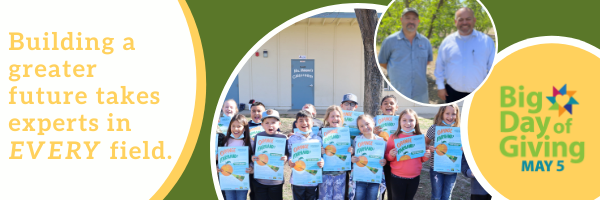
From Immigrants of the Avocado Capital of Mexico, to the Agricultural-Rich State of california
We’re proud to introduce CFT landowners, Juan Carlos and Rodrigo Espinoza. In 2018, Juan Carlos and Rodrigo decided to permanently protect 78 acres of prime farmland under an agricultural conservation easement (ACE) with California Farmland Trust. Like many family farms, agriculture was a way of life from a very young age, however the journey of acquiring their own land was not an easy one. Juan Carlos and Rodrigo immigrated to the United States from Mexico as young boys and ultimately landed in Delhi. Following their farming roots that were established in Michoacan, the avocado capital of Mexico, the brothers joined their father working in the fields on the weekends and during the summers, gaining knowledge and experience in farming. Today, as a family, they farm peaches and almonds throughout Merced and Stanislaus counties. Learn more about the brothers below;
Meet CFT Landowners, Juan Carlos Espinoza and Rodrigo Espinoza
Q: Tell us how you two started in the farming business and how your early experiences shaped who you are today.
Rodrigo: I came to the United States from Mexico when I was 10, and Juan Carlos was 12. My dad came here in the 70s, illegally, to work in the fields, and then brought us over. In 1973, they had my sister and said, “Well we better apply for residency.” So, we applied and then got our green cards in 1978. When we got our green cards, we had no choice but to work on Saturdays, and sometimes during the summers, we would pick grapes, peaches, and other things. Then, through the 1980s and 90s, our family became labor contractors. We worked with some good farmers that, along the way, taught my dad how to farm peaches and almonds. Eventually he started buying up his own land and then my parents helped us start buying our own land too.
Q: What does your operation look like now?
Rodrigo: Now we have about 110 acres together. We farm as a family, but everyone has their own pieces. Juan Carlos has his own 20 acres, and I have another 15 acres myself. I’m also a Merced County Board of Supervisor. I was Mayor of Livingston part-time so I could do more farming, but now as county supervisor, that keeps me real busy. I’m in my twentieth year in politics.
Q: How did you hear of CFT and why did you decide to put an easement on this property?
Rodrigo: Tom Scharffenberger introduced us to agricultural conservation easements, and it was a good opportunity for us. We’re thankful to California Farmland Trust for helping us through the farmland conservation easement process. It has given us the funds to catch up on our bills and expand our farming operation. Sometimes you have to grow a little bit to maintain and increase the size of your family farm, and the easement helped us do that.
Q: Rodrigo, as a county supervisor, you’ve seen Merced County grow and urban sprawl be an issue. We’re all fighting for the same thing – water, land, and other resources. How can we balance all this growth with limited resources?
Rodrigo: My unique situation is that I’m on both sides of the table. I’m a farmer and I’m on the government side; I understand both. For example, last weekend I went to Water Education for Latino Leaders. It’s an organization to educate us about the importance of water. We had people talk about the groundwater sustainability agencies, groundwater, surface water, and the importance of working together, whether you’re a school board member, part of a water district, city council member, or county supervisor. It’s good to see a different view of how things are done, and we have to work together.
Q: What are some of the challenges you are encountering in the farming business?
Rodrigo: We’re concerned about being able to farm, especially with everything going up in price, it’s becoming harder and harder, so we have to debate on whether we want to plant this year, depending on the water situation. We’re lucky here but on the south side of the river, they have extreme water shortages.
Juan Carlos: Luckily, we’re able to transfer our water allotment to other properties we farm in the same district.
Q: As peach farmers, what does the market look like today?
Juan Carlos: There’s always competition, even with peaches. When we go to peach grower meetings, they say “Buy American,” but it’s expensive compared to peaches from other countries. When you look at a 32-ounce can of peaches from the USA, Mexico, China, Turkey, and Israel, the United States is the highest, pricewise. Ours are $1.69 per can versus China at 0.49 cents per can. Even though ours may be better quality and produced with better food standards, it makes it hard to compete.
Q: Can you talk about what it has meant to you to represent Latino farmers?
Rodrigo: More Latinos are getting into farming, which is a good thing, but it’s a challenge because our kids don’t want to farm. We might be the last ones in our family to farm. But I always encourage my kids and Juan Carlos’s kids to come out and help us during the summer checking sprinklers, driving the tractor, and sorting peaches so they can understand the business. We enjoy the farming, but it’s becoming more challenging.
Juan Carlos: I tell my kids, it’s good to get experience in other types of work, but you have to know your heritage.
Q: What advice would give someone who doesn’t understand why protecting farmland is important?
Rodrigo: Farmland is being overtaken by growth in the valley, and if it wasn’t for agricultural conservation easements, all around us would be homes. This is the breadbasket of the world, but if we lose that, we’ll have to buy from other countries, and no one knows what kind of crops we’d be getting.
We hope you enjoyed learning more about our landowners.
Each of our landowners have a unique reason for wanting to protect their farms, and their initiative to do some makes a huge impact for all. If you’re interested in learning more about some of our landowners, click here, for the story of Okuye Farm, owned by Jean Okuye.
Know that your contributions on Big Day of Giving go directly to making an impact, in helping landowners like the Espinozas, protect farmland and preserve their farm for the next generation. Make a donation today: https://www.bigdayofgiving.org/organization/cafarmtrust.


